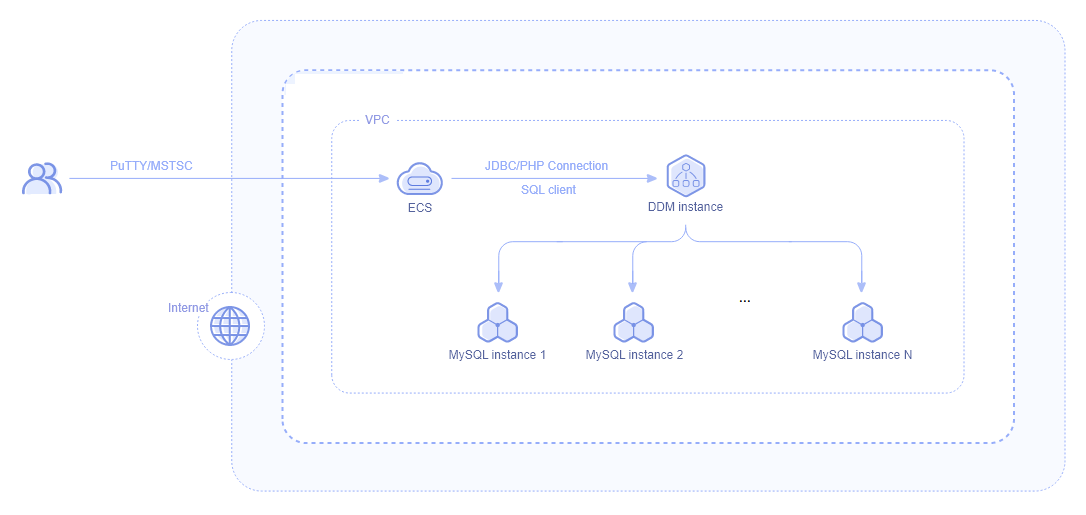Core Functions¶
Function | Description |
|---|---|
Horizontal sharding | Select a sharding key when creating a logical table. DDM will generate a sharding rule and horizontally shard data. |
Flexible shard configuration | DDM supports both compute and storage scaling. You can add nodes to a DDM instance or scale up its node class. Alternatively, increase shards or data nodes to distribute data from one large table to multiple tables or scale out storage resources. Compute scaling is undetectable to your applications. Storage scaling minimizes service interruption to seconds. |
Distributed transactions | DDM processes three types of transactions, including single-shard, FREE, and Extended Architecture (XA).
|
Highly compatible SQL syntax | DDM is highly compatible with the MySQL licenses and syntax. |
Read and write splitting | Read and write requests can be split without modifying the application code, and this is totally transparent to applications. You only need to create read replicas for a MySQL instance associated with your DDM instance and configure a read policy, and a large number of concurrent requests can read data from those read replicas. |
Global sequence | DDM allows you to use globally unique, distributed, and ascending SNs as primary or unique keys or to meet your requirements in specific scenarios. |
DDM console | The DDM console enables you to manage and maintain DDM instances, schemas, and accounts. |
